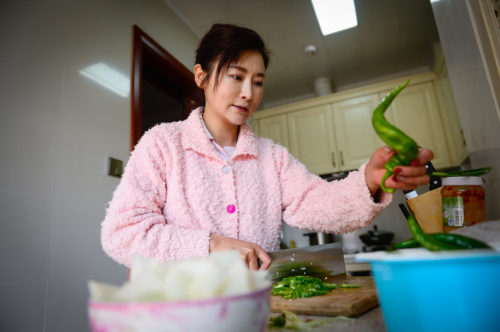Maybe fifth time’s the charm for this Chinese woman trying to divorce her abusive husband
Getting divorced isn’t easy in China, especially when you’re a woman and your husband doesn’t want you to leave.

In news that is both deeply disturbing and disturbingly common, another Chinese woman has found herself fighting an uphill battle with a local court while trying to put a long-delayed end to her unhappy marriage.
According to The Paper (in Chinese), the 36-year-old woman, surnamed Chen, filed her most recent divorce petition last month in Huangshi, Hubei Province. It was her fifth attempt at breaking free from a dysfunctional marriage that was characterized by the violent and controlling behavior of her husband.
When Chen first started dating her husband — who is referred to as Mr. Hu in media reports — things were mostly fine. But not long after the couple tied the knot in September 2016, Hu was diagnosed with paranoid personality disorder, along with other mental health issues like depression and bipolar disorder.
Chen was supportive in the beginning, but Hu’s symptoms gradually worsened over time, Chen told The Paper. By February 2017, she could no longer tolerate Hu’s regular episodes of unwarranted anger and occasional physical violence, so she submitted a divorce petition to a local family court. Her first request was denied. And, over the next four years, so were her two subsequent applications, and an appeal that she filed.
In her petitions, Chen insisted that Hu’s abusive behavior, exemplified by monitoring her cell phone conversations and stalking her when she went out, “severely affected” their married life and eventually led to her wanting to end the relationship. However, Hu countered that the marriage was still salvageable, despite the fact that the pair had been separated since 2017.
The court repeatedly sided with Hu, rejecting Chen’s filings for divorce for reasons varying from insufficient evidence to the case being ineligible for legal intervention. In a ruling handed down last year, the court justified its decision by saying that the couple had “a fairly good foundation for reconciliation” because they had cohabitated even before they got married.
“The root cause of their conflict is that the husband is ill. He is in a position where he needs care and compassion from his partner. The wife should take on the responsibility of tending to her husband,” the court wrote in a document cited by The Paper.
Chen appealed the decision, claiming that Hu concealed his health conditions before the marriage. But the court upheld its original ruling, on the grounds that Hu failed to provide enough evidence to establish that Hu was at fault. “The relationship is not irreversibly broken yet. It’s possible that the couple will be back together,” the court said, citing a commonly used reason in cases where a Chinese woman is denied divorce despite being in an obviously distressing situation.
China news, weekly.
Sign up for The China Project’s weekly newsletter, our free roundup of the most important China stories.
The court’s main argument, which essentially requires Chen to make compromises and shoulder the burden of repairing her marriage at risk of being physically hurt and emotionally abused, is apparently shared by Hu’s family. In an interview (in Chinese), Hu’s brother revealed that Hu had no intention of letting Chen go, adding that, no matter the result of the court case, Hu would ask for a compensation of 970,000 yuan ($149,446) for the “emotional stress” that Chen put him through.
Since the Paper article came out, Chen’s story has gathered widespread social media attention. On Weibo, the main hashtag (in Chinese) associated with the news has generated over 100 million views so far, with the comments being overwhelmingly supportive of Chen. “I hope that the wife will have adequate protection of both her safety and her property. When mentally ill people commit crimes, they sometimes are not held responsible for their actions,” a Weibo user wrote (in Chinese).
Chen’s situation bears a grim resemblance to the experience of Níng Shùnhuā 宁顺花, the 33-year-old woman who was finally granted an exit from her abusive marriage by a Hunan court in April after five years of trying. It also shares some similar elements with the story of Liu Zengyan, who had to jump from a second-floor window to escape her husband’s beating. The plunge caused Liu multiple fractures and temporary paralysis, but a local court in Henan insisted that these weren’t enough to grant Liu the right to leave her violent partner. In the end, it took a viral video of the incident to pressure the court into reconsidering its decision and setting the woman free.
Spouses in China are faced with dual issues: Poorly enforced laws against domestic violence exist alongside growing barriers to divorce, such as a 30-day “cooling-off” period required by Chinese law for couples looking to part ways. The problem disproportionately affects women, who make up over 70% of initiator spouses in divorce cases, and it particularly puts those suffering domestic violence in a dangerous position.






